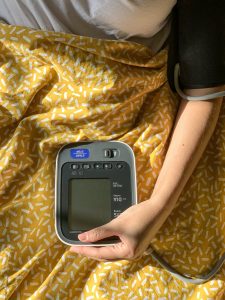Having problems with your arteries can lead to heart issues, so how do you know if you have stiff arteries? Find out how you can know.
Arteriosclerosis happens when the arteries that deliver nutrients and oxygen from your heart to the rest of your body become stiff and thick. As a result, your blood flow can become constricted. However, a subset of arteriosclerosis is a condition called atherosclerosis.
Atherosclerosis happens when fat, cholesterol and other substances build up in your artery walls, forming plaque. As a result, your arteries can narrow, blocking circulation to your heart and the rest of your body. Fortunately, there are treatment options available.
Testing for Stiff Arteries
 If you want to reduce the risk of getting a heart attack, it’s important that you know your arteries are flexible, elastic, and healthy. By doing a simple blood pressure measurement at home, you may be able to tell if your arteries are stiff or not.
If you want to reduce the risk of getting a heart attack, it’s important that you know your arteries are flexible, elastic, and healthy. By doing a simple blood pressure measurement at home, you may be able to tell if your arteries are stiff or not.
Start by checking your resting blood pressure levels with an at-home blood pressure monitor. Afterward, subtract your diastolic (bottom) reading from your systolic (top) reading. If your result is about 40, then you likely have elastic arteries. However, if it goes to 60 and above, then your arteries are becoming inelastic; the higher the number, the stiffer they are.
Symptoms of Atherosclerosis
While mild atherosclerosis doesn’t typically show any symptoms, the same can’t be said for more severe versions. The symptoms that you experience from severe atherosclerosis will depend on which arteries are affected.
For instance, atherosclerosis in your heart arteries can cause angina (chest pain or pressure). In contrast, if the condition is affecting the arteries leading to your brain, you may experience sudden numbness or weakness in your legs or arms. In this case, you can also have difficulty speaking, temporary vision loss in one eye, or drooping face muscles.
Atherosclerosis in your arms and legs can cause leg pain when walking or a reduction in blood pressure surrounding the affected limb. Finally, if the arteries leading to your kidneys are affected, you may develop hypertension or kidney failure.
The Outlook
 If you notice any of these symptoms and you think you may have atherosclerosis, talk to your doctor and treat it early. Be on the lookout for early signs of poor circulation like chest pain, leg pain, or numbness.
If you notice any of these symptoms and you think you may have atherosclerosis, talk to your doctor and treat it early. Be on the lookout for early signs of poor circulation like chest pain, leg pain, or numbness.
By diagnosing and treating the condition early, you can stop it from worsening. Furthermore, you can prevent a heart attack, stroke, or another medical emergency.
In addition, you can try L-arginine Plus to give your heart health an extra boost. Its ingredients effectively promote circulation, blood pressure, cholesterol, and more. Give your health the support it deserves by catching atherosclerosis early and taking L-arginine Plus to enhance your heart health.

